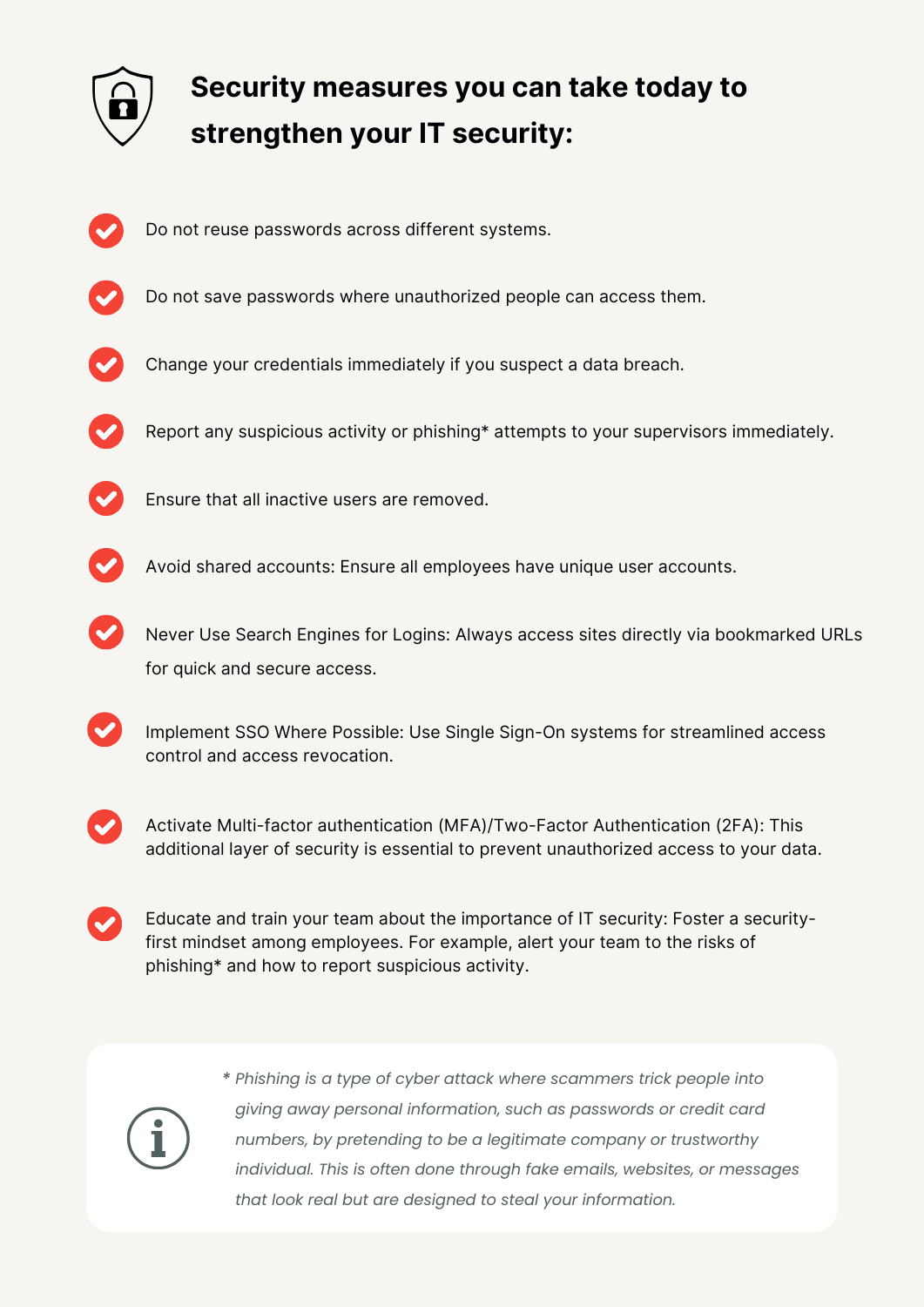Cybersecurity Guide For The Travel and Hospitality Industry
Welcome to our guide on cybersecurity tailored for the travel and hospitality industry. As technology significantly enhances guest experiences, understanding digital threats and defenses becomes crucial for hotels, experience operators, and other travel businesses.
Why Focus on Cybersecurity?
The travel and hospitality industry manages vast amounts of sensitive data, from personal guest information to payment details, making it a target for cybercriminals. As technology advances, so too do the techniques used by these criminals, making it crucial for hotels, resorts, and other experience providers to fortify their defenses. Thibault Miclo, Chief Architect at Visit Group notes, "98% of cybersecurity issues in hospitality stem from social engineering, underscoring the critical need for robust defenses against these manipulative tactics."
"Scammers are using more and more sophisticated methods such as AI to create 'deepfakes', realistic fake videos or audio. These can then trick employees into sharing information by imitating voices or images of trusted people in calls.”
Glenn Cedströmer, Product Owner at Visit Group, illustrates the importance of IT security with a straightforward example: "Just as leaving a house key under the doormat invites trouble, weak cybersecurity opens the door for hackers. Always ensure your digital doors are securely locked." This comparison clearly shows why strong security practices are essential for protecting our data.
Glenn also adds that it’s highly important to put on your critical glasses in the context of IT Security - ”Don’t be gullable - be suspiscious, be attentive, be critical”
Some of the key threats in the hospitality space:
Social Engineering
Manipulative tactics that trick employees into giving away sensitive information. Thibault warns, "Recognizing and mitigating these human-factor vulnerabilities is paramount for our protection."
IoT Vulnerabilities
Security challenges posed by connected devices like smart thermostats and digital key cards. Thibault advises, "With more IoT devices integrating into travel business operations, the potential for security breaches increases significantly."
Third-Party Risks
The potential loopholes that can arise from working with multiple vendors and technology providers. Thibault emphasizes, "Each external connection can introduce vulnerabilities; stringent vetting reduces this risk."
What are the consequences of not taking IT Security into account effectively in the travel and hospitality industry?
Reputation Damage: If hackers breach your systems, they can access and misuse guest data. They might impersonate your business and deceive guests into sending payments, severely damaging your company's reputation. This leads to a loss of customer trust and loyalty that can persist for years.
Strained Business Partnerships: A security breach can also undermine relationships with your business partners, like travel agencies and associations. If these partners believe their data or their customers' data was jeopardized due to your security lapses, it could strain or even sever these partnerships.
Operational impact: Dealing with a cyberattack can be costly and time-consuming, taking attention away from normal business activities.
Lost revenue: Cyberattacks like ransomware could disrupt business critical platforms, leading to lost revenue and higher costs.

Thibault stresses the importance of "Training all employees and eliminating shared accounts as foundational steps in building a resilient cybersecurity framework."
The Visit Approach to IT Security
At Visit Group, we ensure secure transactions and protect guest data across our platform by integrating advanced security measures such as network segmentation, the least privilege principle, and compliance with industry standards like ISO 27001. Thibault highlights our commitment to security, stating, "We implement MFA, end-to-end encryption, Web Application Firewalls, and DDoS protection to safeguard against a wide range of cyber threats."
We also ensure that our online booking systems and payment gateways are secured against fraud and unauthorized access by adhering to the Payment Card Industry Data Security Standard (PCI DSS). Our proactive measures include documented breach response processes and continuous monitoring for unusual activity to prevent security incidents.
In our partnerships, we maintain secure connections with third-party integrations by working only with reliable partners and minimizing the number of connections to reduce vulnerabilities. Thibault adds, "By balancing the need for security with a frictionless user experience, we provide just-in-time access for staff to customer data, ensuring both safety and convenience."
Future Predictions in IT Security
Looking ahead, the landscape of IT security is poised for significant evolution, driven by rapid advancements in technology, particularly artificial intelligence. Thibault, our Chief Architect, notes, "As AI continues to advance, we anticipate more sophisticated cyberattacks that could challenge current security frameworks in the hospitality industry." This progress suggests that while AI can enhance security measures, it also opens new avenues for cyber threats, necessitating a vigilant and proactive approach from businesses
To safeguard sensitive data and maintain guest trust, the industry must continuously adapt and innovate its security practices. Embracing cutting-edge solutions and staying informed about emerging threats are crucial steps in ensuring robust defenses against future challenges. Thibault emphasizes the importance of this adaptive strategy: "We must be agile in our security efforts, constantly updating our practices and technologies to counteract the evolving threats." This ongoing commitment to cybersecurity will not only protect operations but also reinforce customer confidence and preserve the integrity of the travel tech sector.
To Conclude
As the travel tech industry increasingly uses advanced technologies, the need for strong cybersecurity measures becomes crucial. By understanding key threats, implementing effective protection strategies, and keeping up with the latest security trends, businesses can safeguard their operations against evolving cyber threats. Committing to thorough cybersecurity is essential not just for protecting data but for maintaining the trust and confidence of guests and partners. Let's view these challenges as opportunities to strengthen our systems and ensure a secure and successful future for the travel tech industry.
